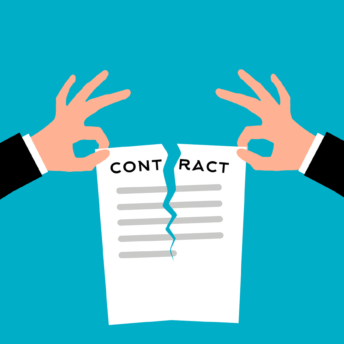A private company can be acquired in one of two ways. First, by buying the shares in the company that owns the business (a share sale). In this instance, the sellers are the shareholders of the company and they will sell their shares in the company to the buyer. Secondly, by buying the assets of the company which comprise the business (a business or asset sale). In this instance, the company is the seller and it will sell some or all of its assets to the buyer.
The majority of acquisitions are structured as share sales but a number of factors may impact on which structure is used. It will often be necessary to restructure the business or company before it is sold to allow it to be acquired in the most appropriate way. In this article, private company acquisition, we take a look at the process involved and the options available to you.
Free Initial Telephone Discussion
For a free initial discussion on how we can help you deal with the legal implications of a private company acquisition, get in touch with us today. We are experienced in dealing with all forms of corporate negotiations and we will review your situation and discuss the options open to you in a clear and approachable manner. Early expert legal assistance can help ensure you avoid the stress of dealing with these issues on your own. Simply call us on 0345 901 0445 or click here to make a free enquiry and a member of the team will get back to you.
What are the implications for Assets and liabilities?
On a share sale, the buyer acquires the company “warts and all” with all its assets, liabilities and obligations. Usually, this offers sellers a cleaner break as after the sale takes place they will have no direct responsibility for the company – any continuing liability will be owed to the buyer under the terms of the warranties and indemnities agreed in the sale and purchase agreement.
On a business sale, only the assets and liabilities which the buyer specifically agrees to purchase are acquired and everything else stays with the company. If the buyer suspects there are unknown liabilities in the company or is concerned by any particular aspect of the business, it may prefer to structure the deal as a business sale. This will allow it to selectively pick from the company’s assets and liabilities and take on only those risks which it understands and finds acceptable. There will be implications for the company’s existing workforce especially concerning pension obligations and liabilities.
Warranties and indemnities
Warranties and indemnities are an important part of any acquisition agreement, whether a share sale or asset sale. In relation to a share sale, warranties typically cover:
- The share capital of the company and group structure.
- Capacity of the seller(s) to enter into the agreement and sell.
- Pensions and employees
- Computer and other IT systems
- Financial accounts and records.
- Compliance with relevant laws and anti-bribery legislation
- Other information (possibly contained in a data room or the disclosure letter).
- Any amendments since the date of the last accounts.
- Warranties relating to assets, such as unencumbered title, condition and adequacy for the target’s current business.
- Intellectual property rights.
- Contracts, including suppliers and customers.
- Litigation/disputes/investigations.
- Tax warranties.
- Environmental issues.
Is insurance cover available?
There is a growing market for warranty and indemnity insurance (W&I insurance). Policies provide cover in respect of claims under the warranties (and sometimes indemnities), either generally or in respect of specific areas of risk.
Policies can be taken out by either the buyer or sellers. The buyer may have concerns about any financial limits on liability negotiated by the sellers or have doubts about the sellers’ future financial position and their ability to pay out for warranty claims. The sellers may be concerned about the potential risk of losing their sale proceeds if the buyer makes a warranty claim, despite a thorough disclosure exercise. Or a policy may be seen as a viable alternative to tying-up money for long periods in an escrow account.
What are the advantages and disadvantages of a share purchase?
An advantage of buying the share capital of a company is that all the assets of the target company are thereby acquired. In the absence of any change of control provisions in documents, whether contracts or licences, and so on, relating to the target’s business (and leaving aside merger control issues), there will generally be no need for consultation with third parties or consents to assignments of contracts.
A disadvantage of a share acquisition is that it will result in all the liabilities of the target being acquired as well. It is therefore vital that appropriate due diligence is carried out and a comprehensive list of warranties (and/or indemnities) is obtained.
What are the advantages and disadvantages of an asset purchase?
An important advantage of an asset purchase is that only identified assets and identified liabilities are acquired (other than those acquired by operation of law in relation to employees). However, the transfer of such assets and liabilities may require the consent of third parties (depending on the terms of the relevant assets and liabilities).
Disadvantages can include the fact that most assets and liabilities will probably not automatically transfer (depending on their terms), therefore assignments of contracts and novations of liabilities are usually required. Additionally, to the extent that an asset is not specifically included, or a liability not specifically assumed, in connection with the asset sale, the buyer will not get title to the asset or the seller will be left with the liability. This is sometimes dealt with by way of what is known as a “wrong pockets” clause in the relevant agreement. In an asset sale, the entity in which the assets and liabilities sit is not acquired. That entity is the seller of the assets and liabilities.
What is involved in the acquisition process?
If you have decided that buying an existing business is more attractive to you than starting one from scratch, there are a number of things to consider. Attention to detail is key and the more thorough your initial work, the more likely you are to find a business that will work well for you.
Carry out research on what type of business you would like to buy.
The business must be a good fit for you. There is no point in buying into a business if you have no industry experience, no desire to operate in that space or the business is located a long way from home.
Consider how the business will impact upon your home life. Will you have the time to commit to it if you have existing family obligations such as very young children? A long journey to work after the first few months of acquisition may not bother you but consider how you would feel being stuck in traffic on a dark rainy November night.
The key is to research the sector you’re interested in, including the best time to buy, and shortlist two or three businesses that look attractive. Developing a good acquisition strategy revolves around the acquirer having a clear idea of what they expect to gain from making the acquisition – what their business purpose is for acquiring the target company (e.g., expand product lines or gain access to new markets)
View the business and carry out a valuation
The existing owner may not have told his staff and business contacts that he or she is looking to sell their business. Consequently, it is important to be discreet when you arrange to view the business.
Assuming initial contact and conversations go well, ask the target company to provide substantial information (current financials, etc.) that will enable the acquirer to further evaluate the target, both as a business on its own and as a suitable acquisition target. There are a number of methods that can be used to value a business and these are set out below:
Multiple of Earnings: In this instance, a variable figure known as a price to earnings (PE) ratio is used. This PE ratio often varies from industry to industry. Using this technique, a valuation is derived by establishing what the income of the business is and then multiplying it by the PE figure. For example, if your business generates £100,000 post tax profit and is in an industry where a PE ratio of 5 is considered reasonable, the business would be valued at 5 x £100,000 = £500,000.
The key to this technique is how to find the PE figure. Business consultants often use figures between 4 and 10 dependent upon the industry and the specific circumstances of the particular business. In a small business, for example, the generating of profit can be quite precarious. Key staff could leave the business or a major customer may cancel a contract often leaving the business in a dire situation. As such, PE ratios are normally smaller for small businesses compared to larger concerns where they are often better placed to survive the often tumultuous nature of commerce.
It should also be remembered that businesses, where profits are growing rapidly, will also command a higher earnings multiple than firms where profit growth is low or there is no growth at all. Most incoming purchasers will want to see that there is potential for growth, not stagnation.
Valuing Assets: This technique involves valuing all the tangible assets of the company (stock, machinery, property etc). This method is often employed when valuing a company whose business model is based around holding these kinds of assets such as property companies.
Cost To Duplicate: Often heard in the BBC TV program “Dragon’s Den”, the judges analyse a business looking for investment and dismiss the valuation based upon the cost to actually replicate a similar business from scratch. This would often include the cost of developing a customer base and reputation, recruiting and training staff, purchasing assets and developing products and services.
Discounted Cashflow: This technique involves forecasting how much cash flow the business will produce in the future and then, using an expected rate of investment return, calculating how much that cash flow is worth. A higher discount rate is typically applied to new business ventures, as there is a high risk that the company will inevitably fail to generate sustainable cash flows. The trouble with this method is that the quality of the DCF depends on the valuer’s ability to forecast future market conditions and make good assumptions about long-term growth rates. In many cases, projecting sales and earnings beyond a few years becomes something of a guessing game.
Industry Valuations: In certain industries, when businesses are bought and sold on a regular basis, industry accepted standards are sometimes used to value a company. Examples of such industries include recruitment agencies and accountancy practices.
Going Concern Valuation
This kind of valuation assumes that your business is going to keep on going under its new owners. When calculating the value of a going concern’s assets, you need to take into account the business’s intangible assets, because those assets are going to transfer to the new owner. You also need to take into account the goodwill that your company has. It can be viewed as an asset with a quantifiable value, and it can be bought and sold like any other asset.
How are you going to pay for the business?
You may be in the fortunate position that you are a cash buyer in which case the purchase of the business will be relatively straightforward. However, for the majority of purchasers, finance will need to be arranged. You may already have a good relationship with your bank in which case they should be your first port of call. Alternatively, there are other specialised institutional investors in the market that lend to people buying businesses or alternatively you could raise finance from external investors.
A commercial lender will require detailed accounts of the business along with a business plan with growth projections and details of your own assets.
The Offer
After producing several valuation models of the target company, the acquirer should have sufficient information to enable it to construct a reasonable offer. If you are happy with your due diligence and everything checks out, now is the time to make an offer. The “consideration” is what the seller gets when he is selling. In order for there to be a binding agreement there needs to be an offer, acceptance, consideration and intention to enter into a legal contract. You can take professional advice as to the valuation of the business but in any transaction the seller has to be satisfied they are getting a good deal and the buyer has to believe they are getting value for their money.
It is important to consider the structure of any offer received. Is it a payment due on the day you buy the business; is it related to the performance of the business after the seller leaves; or is there a split payment of cash up front in addition to delayed consideration?
The sale process
Once you have made your offer and if the seller has decided to accept, you should instruct your lawyers and accountants, who will work closely during the sale process. Being in touch with your lawyers and accountants early on in the transaction helps to avoid unnecessary pressure later on.
Conclusion
If you are looking to buy a private company, you need to be realistic about the process and the amount of work involved. There are both advantages and disadvantages of buying an existing company and it is important that you have carefully considered all options before proceeding with a purchase.
How we can help
We have a proven track-record of dealing with company sales and acquisitions. We will guide you through the process and ensure all checks are carried out swiftly and efficiently and we firmly believe that with the right solicitors by your side, the entire process will seem more manageable and far less daunting.
How to Contact Our Corporate Solicitors
It is important for you to be well informed about the issues and possible implications of a private company acquisition. However, expert legal support is crucial in terms of ensuring a positive outcome to your case.
To speak to our Corporate solicitors today, simply call us on 0345 901 0445, or click here to make a free enquiry. We are well known across the country and can assist wherever you are based. We also have offices based in Cheshire and London.





